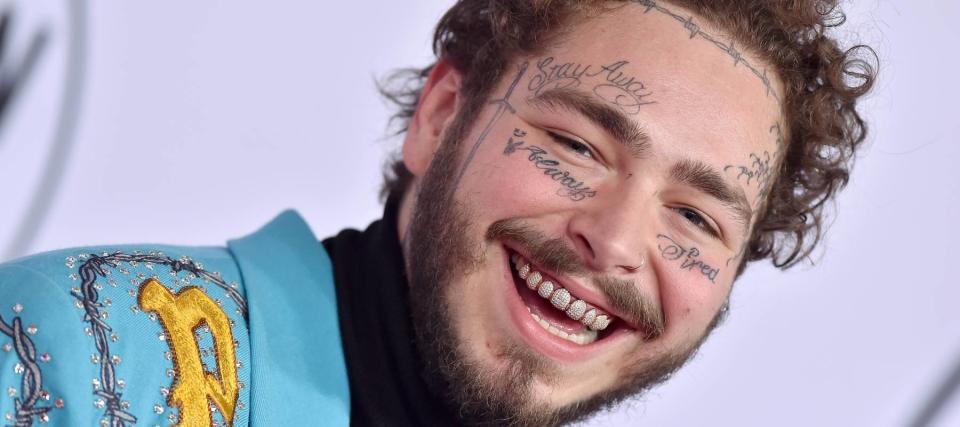The US government doled out over $200M of pandemic relief that helped famous musicians such as Post Malone, Lil Wayne, and Nickelback, report says. How COVID aid has potentially been wasted

The U.S. government doled out over $200 million of pandemic relief funds that benefitted famous musicians such as Post Malone, Lil Wayne, Chris Brown and Nickelback, according to a report by Insider.
Don't miss
Rich young Americans have lost confidence in the stock market — and are betting on these 3 assets instead. Get in now for strong long-term tailwinds
Worried about the economy? Here are the best shock-proof assets for your portfolio. (They’re all outside of the stock market.)
Super-rich Americans are snatching up prime real estate abroad as US housing slumps — but here's a sharp way to invest without having to move overseas
Here’s how it happened: The Small Business Administration created the Shuttered Venue Operators Grant (SVOG), which was designed to give grants to venues affected by COVID-19 lockdowns. Eligible applicants could receive a grant of up to $10 million from the SVOG, no repayment required. Insider reports a number of grants also ended up in the hands of touring companies.
Dozens of these companies controlled by high-profile musicians took advantage of the SVOG, according to Insider. A corporation controlled by Post Malone, for example, received a $10 million SVOG grant in 2021, the report says. The publication says an analysis revealed over $200 million in grants benefitted big-name artists.
Insider offered no details about how any grant money was spent. It’s possible that it could have gone toward production expenses, to contractors or simply to the artists themselves. Insider says it contacted all of the artists named in its report to ask how they spent their grants. None of them shared detailed information, and most did not respond. Either way, there’s no indication that any laws were broken.
As pandemic relief programs wind down, reports into how government funds were used have been rolling out. Here are a few instances where taxpayer dollars were potentially wasted through COVID-19 relief funds for businesses and people who didn’t need them.
Celebrities receive loan forgiveness
Here’s another example of a program functioning as intended that seems to have benefitted the not-so-needy.
The Paycheck Protection Program (PPP), was designed to help businesses maintain their employee headcount. The funds were distributed as loans, however, they could be forgiven under certain conditions. An NPR analysis of SBA data released in January found that 92% of PPP loans were granted full or partial forgiveness.
Some businesses with rich owners were among those that got off the hook. Retired NFL quarterback Tom Brady’s sports nutrition company TB12, for example, received a PPP loan for $960,000, which has since been forgiven in full.
Read more: Americans are spending a ridiculous $253/month more on groceries. But this simple hack can turn your stressful daily spending into a golden nest egg
Small business fraud
The Office of Inspector General (OIG) announced in June that it found the SBA may have paid out over $200 billion in fraudulent relief funds.
The OIG says 4.5 million potentially fraudulent claims were made through the SBA’s PPP and the COVID-19 Economic Injury Disaster Loans (EIDL) program.
The programs were created to help businesses stay afloat and pay their employees during lockdowns. The OIG believes that many of the PPP and EIDL scammers were part of organized crime rings who took advantage of the rapid rollout of the pandemic aid programs.
Fintech fraud
Several financial technology companies swooped in during the pandemic to help applicants fill out pandemic aid paperwork and process those requests on behalf of banks.
Some of these companies raked in billions of dollars in fees for facilitating PPP loans while turning a blind eye to fraudulent applications, according to a report released in December by the House Select Subcommittee on the Coronavirus Crisis.
For example, loan reviewers from one company, Blueacorn, told the subcommittee they were pressured to approve PPP applications that seemed suspicious, especially if they were high-dollar applications, the report says.
Blueacorn did not immediately respond to requests for comment from multiple news publications when the report was released.
Blueacorn received over $1 billion in taxpayer-funded processing fees, according to the report. But the subcommittee also believes tens of billions of dollars in PPP funds were likely handed out to fraudsters.
What to read next
Here's how much money the average middle-class American household makes — how do you stack up?
Millions of Americans are in massive debt in the face of rising rates. Here's how to get your head above water ASAP
'Hold onto your money': Jeff Bezos says you might want to rethink buying a 'new automobile, refrigerator, or whatever' — here are 3 better recession-proof buys
This article provides information only and should not be construed as advice. It is provided without warranty of any kind.
